Note: This review has been prepared by Material Bitcoin. We are not affiliated, sponsored, or associated with Trust Wallet. This is an unbiased opinion based on our experience and publicly available information.
With so many options in the realm of cryptocurrency, it can sometimes take a while to tell what is safe, secure, and user-friendly. In this post, we will share the key aspects of Exodus and Trust Wallet.
What is the difference between them? Which one is safer? Which one is better? And finally, we will dig into Material Bitcoin’s Wallet option and lay out why it sets itself apart from the competition.
What is a Cryptocurrency Wallet?
First and foremost, let’s go back to the basics and unveil what a crypto wallet is.
A crypto wallet is not exactly what you might be thinking…it doesn’t hold your cryptocurrency like a traditional wallet would hold your money. Instead, it stores the private keys and reads your investment balances via user addresses.
Bottom line. It is a “safe place” to keep your keys and symbolic ownership of currencies.
Choosing the right wallet for you is extremely important, especially when you consider who will be accessing your wallet and how. Now, let’s dive into the differences between Exodus and Trust Wallet, two popular crypto wallets, and discover which is best for you!
Exodus vs. Trust Wallet
Exodus Wallet:

Known as a non-custodial wallet that can hold up to 250 different cryptocurrencies, including Bitcoin, Ethereum, XRP, BNB, XRP, Cardano, Solana, and Tron, it functions as a hot wallet that relies on an internet connection to access your portfolio.
You can send, receive, and trade blockchain assets while your wallet is offline through a third-party exchange.
You can access Exodus through a web browser or mobile app, and as it is a self-custody wallet, only you have the private keys to this platform.
What makes Exodus Wallet a bit different from other wallets is that it isn’t accessible with a traditional log-in and password. Instead, it uses a 12-word passphrase that you and only you are responsible for.
We must say, having a unique passcode definitely makes hacking much more difficult but also has the downside of almost impossible recovery if you lose or forget parts of the phrase.
Exodus Wallet does not charge any fees for set-up or access to the platform however as it uses third-party API payment processors, you will pay about 5.5% when using debit or credit cards.
Trust Wallet:
Another example of a non-custodial, decentralized wallet, Trust Wallet allows its users to hold their private keys, secured by a PIN and passphrase.
Like Exodus, it also needs to be connected to the internet. You can use the platform with a Chrome browser extension and mobile apps for iOS and Android are available for easy access.
Used by over 60 million people worldwide, Trust Wallet is one of the more popular crypto hot wallets available, supporting a wide range of cryptocurrencies and NFTs. The user interface is easy to manage and has guides built into the website and apps for quick and straightforward explanations and tutorials for new users.
Exodus vs. Trust Wallet in pricing is on par, as Trust Wallet is also free to use but charges between 3-5% of debit/credit card user fees.
But, what sets Trust Wallet apart is its seamless ability to enter dApps through the same interface, meaning that you do not need to verify your account for a second time when accessing decentralized exchanges, yield farming, crypto loans, staking tools, and more.
The Battle of the Wallets: Exodus vs. Trust Wallet User-Experiences
When it comes to giving opinions, you can find endless amounts online. Blogs, threads, and social media are filled with user experiences.
However, should you be listening to the opinions of your peers when deciding which crypto wallet is best for you?
YES!
User feedback is always a good option when looking into where to safeguard your investments and you should take advantage of the many opinions there are.
Of course, it is important to find reputable and genuine opinions from real users. Searching for reviews within the App Store, Google Play, or user experience videos on YouTube, as well as threads such as on Reddit can be highly useful.
For example, when looking into the highly competitive market of non-custodial wallets and trying to find a winner in the battle of Exodus vs. Trust Wallet, many users state that neither is a good choice, especially for a high amount of crypto storage.
Reddit Insights: Exodus vs. Trust Wallet Discussion

In a Reddit thread, users share their thoughts on whether they prefer Exodus, Trust Wallet, or neither. Here are some key comments:
- User 1 (konokonohamaru): “Why use closed source when you can go for open source?”
- User 2 (haakon): “Why limit your choice to two closed-source wallets? That defeats the purpose of self-custody. Electrum, Sparrow, and Specter are three excellent open-source wallets.”
- User 3 (igadjeed): “Neither. Use only open-source wallet apps.”
- User 4 (uncontrollableop): “Definitely neither. Both are closed-source wallets. Most people will disagree, but most people are, in fact, stupid. Don’t be stupid.”
- User 5 (Reincken): “Green wallet is the most secure with multisig/two-factor authentication.”
These insights emphasize the importance of open-source wallets and suggest alternatives like Electrum, Sparrow, and Specter. Some users prefer not using either mentioned wallet, opting for open-source applications for enhanced security.
Exodus vs. Trust Wallet conundrum
A bit strange to think why some users won’t store all their crypto in Exodus or Trust Wallet.
Why? Because they are both HOT WALLETS.
At the end of the day, hot wallets unfortunately are susceptible to hacking and phishing schemes.
Some users even go as far as to compare both wallets to centralized banking since they are closed wallets – meaning that they both need the developers to update and maintain the platform, rather than relying on the code.
Is There Another Option in All of This?
If security is what you require, then Material Bitcoin is the best place for your cryptocurrency storage. It is a non-custodial, cold wallet that is not connected to the internet. This guarantees that your crypto can never be hacked or that your private keys can be exposed.
You literally have all of your crypto physically on the steel plate in your hands!
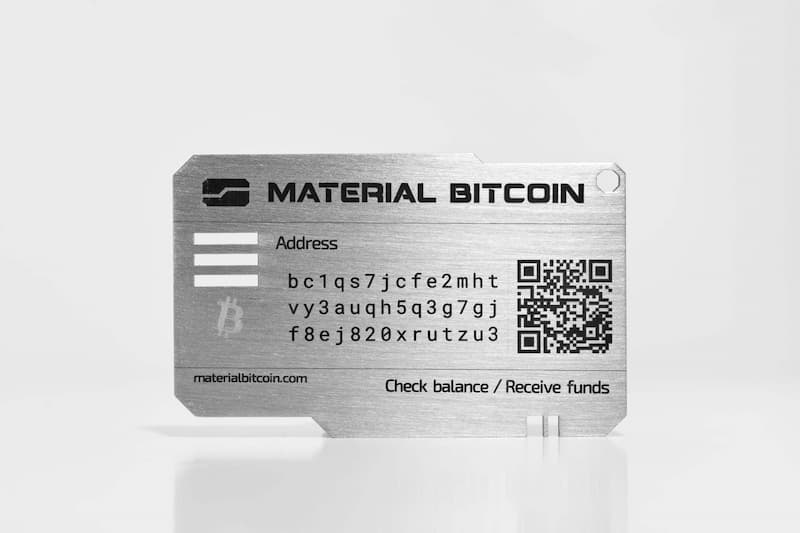
Additionally, if you want to trade or receive funds from Exodus or other wallets onto your secure Material Bitcoin Wallet, you have the option of scanning the QR code on the face of the plate and following the easy-to-use steps.
Like other users of crypto wallets have stated before, wallets like Trust, Exodus, Arculus, or Coinbase, to name a few, are okay for holding smaller amounts used for habitual transactions, buying and selling. But if you are looking for secure storage of your crypto investments, a cold wallet like Material Bitcoin is your best option.
Final Thoughts
No matter which crypto wallet you opt for, make sure to do your research, assess the security features, test out the platform’s user-friendliness, and here’s our suggestion – ensure your funds are hacker-proof.

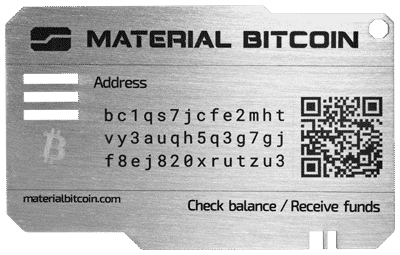
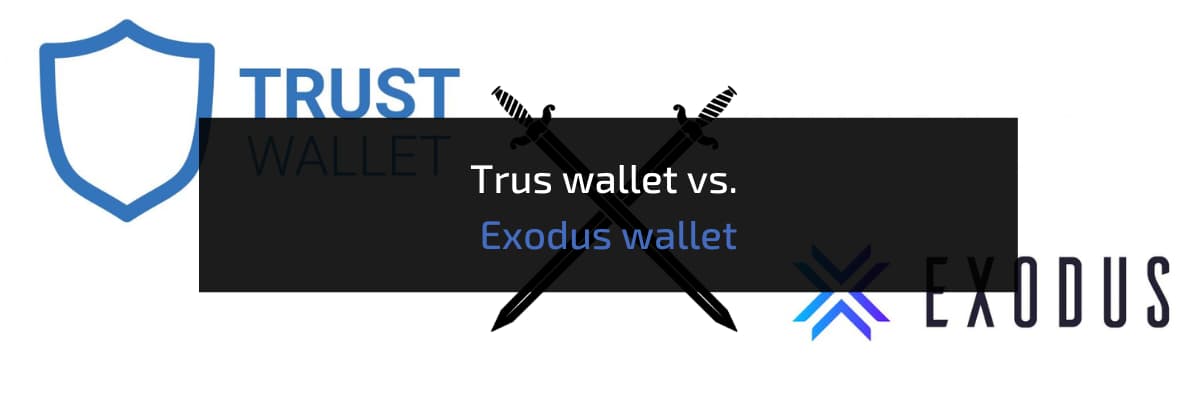
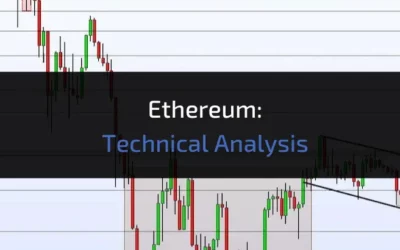



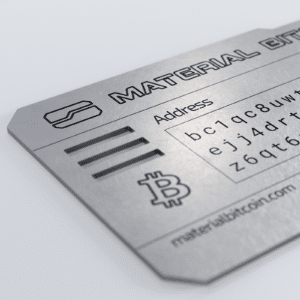
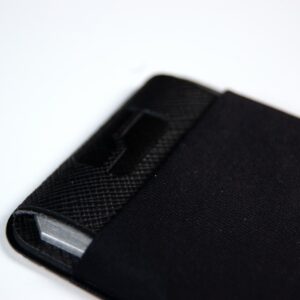

0 Comments